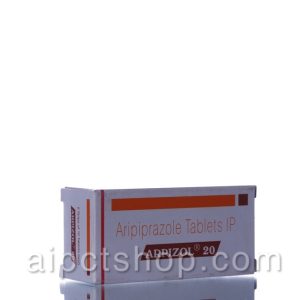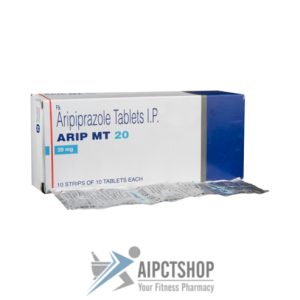What is this drug used for?
– It is used to treat bipolar problems.
– It is used to treat schizophrenia.
– It is used to treat low mood (depression).
– It may be given to you for other reasons. Talk with the doctor.
Frequently reported side effects of this drug
– Anxiety
– Dry mouth
– Fatigue
– Increased appetite
– Weight gain
– Nausea
– Vomiting
– Stuffy nose
– Back pain
Other side effects of this drug: Talk with your doctor right away if you have any of these signs of:
– Low thyroid level like constipation; trouble handling heat or cold; memory problems; trouble with memory; or burning, numbness, or tingling feeling
– Depression like suicidal ideation, anxiety, emotional instability, agitation, irritability, panic attacks, mood changes, behavioral changes, or confusion
– Infection
– High blood sugar like confusion, feeling sleepy, more thirst, hunger, passing urine more often, flushing, fast breathing, or breath that smells like fruit.
– Severe dizziness
– Passing out
– Severe headache
– Abnormal heartbeat
– Fast heartbeat
– Chest pain
– Abnormal movements
– Twitching
– Change in balance
– Trouble swallowing
– Trouble speaking
– Tremors
– Trouble moving
– Rigidity
– Severe loss of strength and energy
– Drooling
– Seizures
– Severe abdominal pain
– Trouble urinating
– Flu-like symptoms
– Vision changes
– Enlarged breasts
– Nipple discharge
– Sexual dysfunction
– No menstrual periods
– Severe constipation
– Neuroleptic malignant syndrome like fever, muscle cramps or stiffness, dizziness, very bad headache, confusion, change in thinking, fast heartbeat, abnormal heartbeat, or sweating a lot
– Tardive dyskinesia like unable to control body movements; tongue, face, mouth, or jaw sticking out; mouth puckering; and puffing cheeks
– Signs of a significant reaction like wheezing; chest tightness; fever; itching; bad cough; blue skin color; seizures; or swelling of face, lips, tongue, or throat.
Note:?This is not a comprehensive list of all side effects. Talk to your doctor if you have questions.
Pronunciation
(kwe TYE a peen)
Medication Safety Issues
Sound-alike/look-alike issues:
QUEtiapine may be confused with OLANZapine
SEROquel may be confused with Desyrel, SEROquel XR, Serzone, SINEquan
Storage and Stability
Store at 25?C (77?F); excursions permitted between 15?C and 30?C (59?F and 86?F).
Adverse Reactions
Actual frequency may be dependent upon dose and/or indication.
Cardiovascular: Hypertension (adults), hypertension, hypotension, increased diastolic blood pressure (children and adolescents), increased heart rate, increased systolic blood pressure (children and adolescents), orthostatic hypotension (children and adolescents), palpitations, peripheral edema, syncope, tachycardia
Central nervous system: Abnormal dreams, abnormality in thinking, aggressive behavior (children and adolescents), agitation, akathisia, anxiety, ataxia, confusion, decreased mental acuity, depression, disorientation, disturbance in attention, dizziness, drowsiness, drug-induced Parkinson disease, dysarthria, dystonic reaction, extrapyramidal reaction, falling, fatigue, headache, hypersomnia, hypertonia, hypoesthesia, irritability, lack of concentration, lethargy, migraine, pain, paresthesia, restless leg syndrome, restlessness, twitching, vertigo
Dermatologic: Acne vulgaris (children and adolescents), diaphoresis, hyperhidrosis, pallor (children and adolescents), skin rash
Endocrine & metabolic: Decreased HDL cholesterol (?40 mg/dL), decreased libido, hyperglycemia (?200 mg/dL post glucose challenge or fasting glucose ?126 mg/dL), hyperprolactinemia, hypothyroidism, increased LDL cholesterol (?160 mg/dL), increased serum triglycerides (?200 mg/dL), increased thirst (children and adolescents), total cholesterol increased (?240 mg/dL), weight gain (dose related)
Gastrointestinal: Abdominal pain, anorexia, constipation, decreased appetite, diarrhea (children and adolescents), dyspepsia, dysphagia, gastroenteritis, gastroesophageal reflux disease, increased appetite, nausea, periodontal abscess (adolescents), toothache, viral gastroenteritis, vomiting, xerostomia (more common in adults)
Genitourinary: Pollakiuria, urinary tract infection
Hematologic & oncologic: Leukopenia, neutropenia
Hepatic: Increased serum transaminases
Hypersensitivity: Seasonal allergy
Neuromuscular & skeletal: Arthralgia, asthenia, back pain, dyskinesia, limb pain, muscle rigidity, muscle spasm, myalgia, neck pain, stiffness (children and adolescents), tremor
Ophthalmic: Amblyopia, blurred vision
Otic: Otalgia
Respiratory: Cough, dyspnea, epistaxis (adolescents), influenza, nasal congestion, paranasal sinus congestion, pharyngitis, rhinitis, sinus headache, sinusitis, upper respiratory tract infection
Miscellaneous: Fever
Rare but important or life-threatening: Abnormal gait, abnormality of accommodation, abnormal T waves on ECG, acute renal failure, agranulocytosis, alcohol intolerance, amenorrhea, amnesia, anaphylaxis, anemia, angina pectoris, apathy, aphasia, arthritis, asthma, atrial arrhythmia, atrial fibrillation, atrioventricular block, blepharitis, bradycardia, bruxism, buccoglossal syndrome, bundle branch block, candidiasis, cardiomyopathy, cataract, catatonia, cerebral ischemia, cerebrovascular accident, chills, choreoathetosis, colonic ischemia, conjunctivitis, contact dermatitis, cyanosis, cystitis, deafness, deep vein thrombophlebitis, dehydration, delirium, delusions, dental caries, depersonalization, dermal ulcer, diabetes mellitus, DRESS syndrome, dysmenorrhea, dysuria, ecchymosis, eczema, ejaculatory disorder, emotional lability, enlargement of abdomen, eosinophilia, euphoria, exfoliative dermatitis, eye pain, facial edema, fecal incontinence, first degree atrioventricular block, flattened T wave on ECG, flatulence, flu-like symptoms, galactorrhea not associated with childbirth, gastritis, gingival hemorrhage, gingivitis, glaucoma, glossitis, glycosuria, gout, gynecomastia, hallucination, hand edema, hematemesis, hemiplegia, hemolysis, hemorrhoids, hepatic failure, hepatic necrosis, hepatitis, hiccups, hyperglycemic hyperosmolar syndrome, hyperkinesia, hyperlipemia, hypersensitivity reaction, hyperthyroidism, hyperventilation, hypochromic anemia, hypoglycemia, hypokalemia, hyponatremia, hypothermia, impotence, increased creatine phosphokinase, increased gamma-glutamyl transferase, increased libido, increased salivation, increased serum alkaline phosphatase, increased serum creatinine, increased ST segment on ECG, insomnia, intestinal obstruction, inversion T wave on ECG, involuntary body movements, irregular pulse, ketoacidosis, lactation (females), leukocytosis, leukorrhea, lower limb cramp, lymphadenopathy, maculopapular rash, malaise, manic reaction, melena, myasthenia, myocarditis, myoclonus, neuralgia, neuroleptic malignant syndrome, nightmares, nocturia, obstructive sleep apnea syndrome (Health Canada 2016; Shirani 2011), oral mucosal ulcer, orchitis, ostealgia, pancreatitis, paranoia, pathological fracture, pelvic pain, pneumonia, polyuria, priapism, prolonged Q-T interval on ECG, pruritus, psoriasis, psychosis, rectal hemorrhage, retrograde amnesia, rhabdomyolysis, seborrhea, seizure, skin discoloration, skin photosensitivity, SIADH, sleep apnea, somnambulism, Stevens-Johnson syndrome, stomatitis, ST segment changes on ECG, stupor, stuttering, subdural hematoma, suicidal ideation, suicidal tendencies, tardive dyskinesia, taste perversion, thrombocytopenia, thrombophlebitis, tinnitus, tongue edema, toxic epidermal necrolysis, urinary frequency, urinary incontinence, urinary retention, uterine hemorrhage, vaginal hemorrhage, vaginitis, vasodilation, visual disturbance, vulvovaginal candidiasis, vulvovaginitis, water intoxication, weight loss, widened QRS complex on ECG, xerophthalmia









Reviews
There are no reviews yet.